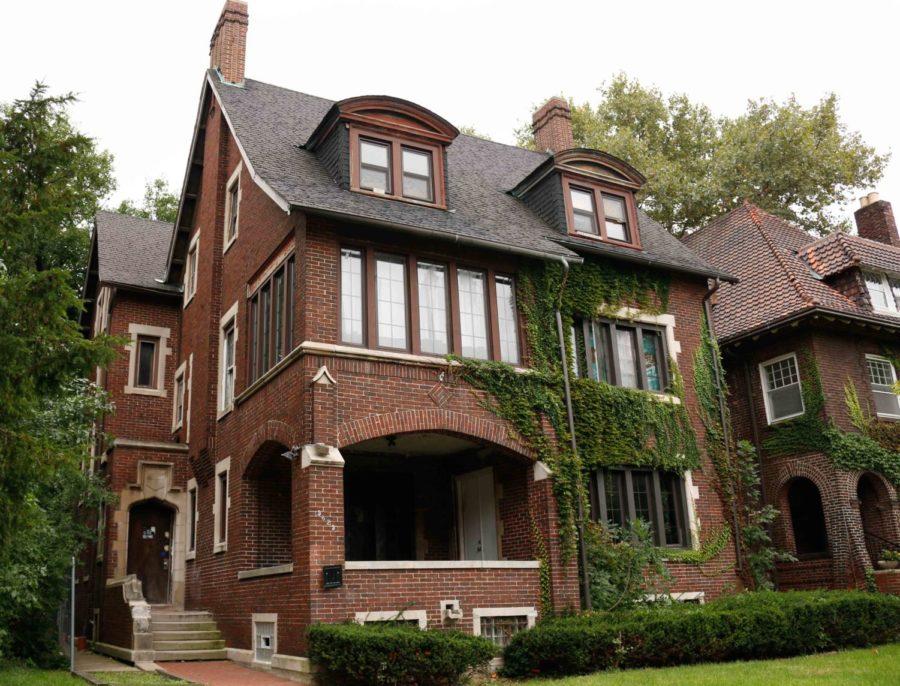A hazing lawsuit brought against the Phi Delta Theta (Phi Delt) fraternity and several brothers of the former UChicago chapter was settled, a September 11 court document shows.
Dylan Kanaan, who was a spring 2015 Phi Delt pledge, alleged in a June 2016 complaint that he was hazed on the night of his initiation ceremony. According to Kanaan’s complaint, the defendants in the case forced him to binge drink alcohol and physically assaulted him in the chapter house.
Kanaan said the injuries he sustained on the night of the incident included a concussion, a fractured cheekbone, and a large cut under his eye. His complaint sought $250,000 in damages.
None of the parties in the case wanted to comment on the settlement. The agreement includes a confidentiality clause, according to a representative of one party in the case.
“Regarding this matter, because it was a confidential settlement, I and all parties are not able to answer questions or comment,” wrote executive vice president and CEO of Phi Delt Robert Biggs in an e-mail. William Eveland, Phi Delt’s attorney in the case, said he had no comment.
Jason Kleinman, an attorney for defendant Dakota Ford, said upon introduction, “I’ll spare you the trouble, and you can quote me on this, I don’t have any comment.”
Attorneys for the other named defendants in the case, former chapter president Nicholas Luthi and former rush chair Mihir Dubey, did not return voice mails, e-mails, or messages left with their assistants.
In January 2016, before Kanaan filed his lawsuit, the fraternity announced that the UChicago chapter would undergo “recolonization,” a process under which the fraternity said the chapter would be dormant until all students who were members have graduated from the University. A letter obtained by The Maroon informing fraternity alumni of the decision cited “risk management policy violations” as the reason for recolonization. It was not clear until October 2016, however, when The Maroon published a report on the hazing incident, that the decision to recolonize came after a Phi Delt investigation into the incident at issue in the lawsuit.
Last fall, former Phi Delt brother Ford decided to share the chapter’s side of the story with The Maroon. Ford shared documents and photos related to the case. In one of the documents he provided, a brother admitted that the chapter’s actions were “blatantly irresponsible.” Ford acknowledged he believed that Kanaan had a case against the fraternity: “This kid definitely has a case…. He deserves something, it’s obvious. He has a personal injury case.” But the account Ford presented disputed Kanaan’s core allegations—that he was singled out, trapped in Ford’s basement room, and assaulted—and instead alleged that Kanaan sustained his injuries when he slipped on a patch of ice while drunkenly trying to run out of the fraternity house.
Ford did not dispute that pledges were made to drink significant amounts of Everclear and beer before the incident.
A court filing with Dubey’s response to the complaint denies many of Kanaan’s allegations but accepts some details from Kanaan’s account.
Dubey acknowledged that pledges and members consumed a “green liquid” and beer on the night of the incident. He admitted that Kanaan was in the basement of the house and Ford’s room for a portion of the night, and he admitted that Kanaan tried to leave that room and run outside the chapter house.
Dubey denied or said he lacked the knowledge to respond to Kanaan’s main allegations, and he alleged that when Kanaan attempted to leave “fraternity members attempted to assist Plaintiff who was acting erratically.”
Dubey also said that Phi Delt knew or “had reason to know of the conduct of its fraternity members” and that it “provided substantial assistance to [the chapter] with respect to the pinning ceremony at issue.”
Phi Delt’s main argument in the case, according to a motion it filed to dismiss the complaint, was that “a national fraternity like [Phi Delta Theta] is not liable as a matter of law for the alleged actions of a local college fraternity chapter and its student members.” Phi Delt supported this claim by stating that it “did not control or direct the daily activities of the chapter and its student members” and that it does not permit hazing in its policies.
Dubey and Ford alleged in court filings that Kanaan knowingly and willingly acted irresponsibly, putting himself at risk. Kanaan rejected this claim in response. Luthi, through his attorney, raised technical issues with the complaint, such as instances where he alleged that it includes too much or too little detail, claiming that this prevented him from being able to respond.
Kanaan’s attorneys, Jonathon Fazzola and Doug Fierberg, did not respond to Maroon inquiries about the settlement. Fierberg, however, is quoted in a September 15 NBC News story about the death of a Louisiana State University Phi Delt pledge. The story refers to Fierberg as “a prominent anti-hazing attorney who just settled a lawsuit against Phi Delta Theta on behalf of a University of Chicago pledge who was assaulted.”
Fierberg appears to criticize a Phi Delt policy implemented in 2000 that designates the fraternity as alcohol-free: “Whatever policy they have relies on the implementation by 18-, 19- and 20-year-olds who are untrained and ill-equipped to manage the fraternities…. You can have a policy that says no terrorists go through the turnstiles at the airport, but if you staff the turnstiles with 18-, 19- and 20-year-old drunk kids, your policies will never rise above that level.”








